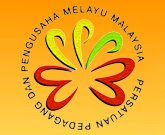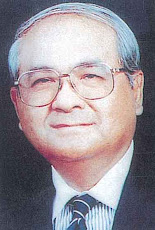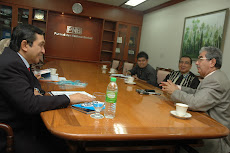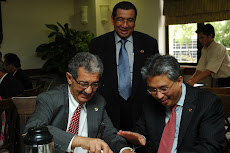Let's salute our athletes

HOSTS Singapore defied the expectations at the 28th SEA Games. My counterpart Lawrence Wong, who also chaired the Games’ organising committee, told me the Singaporean athletes’ performances as well as the groundswell of support from the public was beyond what he imagined. Indeed, Singapore posted their best-ever results – winning 84 golds to finish second overall behind Thailand.
I would like to applaud Singapore for a truly well organised and efficient Games. The atmosphere was vibrant, everything worked well and a lot of attention had gone into getting the details right. This will be an extremely hard act for us to follow as hosts in 2017.
I am also happy to report that our athletes also defied expectations. Our final medal tally – 62 golds, 58 silvers and 66 bronzes – came up to 186 medals, two more than the target of 184 overall medals (representing 56% of total events in which we competed).
Our gold medal haul was significantly more than the 43 we won in Myanmar in 2013. It was the second best outside of Malaysia ever after the 2007 Games in Korat, Thailand, where we won 68 golds.
But we did better in Singapore as there were more sports and events in Korat. If you just take the same 34 sports staged in 2007 and this year, our gold count is better this time. In Korat, we won 50 but we bagged 61 in Singapore.
Before our contingent left for Singapore, I had stated that we were going to treat this edition of the SEA Games as a platform for development. I consulted other stakeholders in Malaysian sports and we collectively agreed that the SEA Games must be used to expose our younger athletes especially in sports where we can do well at higher levels such as the Asian Games, Commonwealth Games and Olympics.
It would also be a great opportunity to give our pelapis (back-up) athletes the much needed competitive experience for them to prepare for the 2017 SEA Games.
As a result of this shift in emphasis, 48% of our contingent was below 21 years old. What was more remarkable was that 151 of these Under-21 athletes contributed a medal and 28 of them were golds. And they were representing Malaysia for the first time at this level.
Our victorious men’s hockey team were all national juniors while our back-up players made a clean sweep in squash. In sailing, Malaysian sailors shocked and upset competitors far more experienced than them.
Aaliyah Yoong Hanifah and her younger siblings underlined our future dominance in waterski. Young stars of the Games like Rafiq Ismail, Farah Ann Abdul Hadi and Ooi Tze Liang emerged with multiple golds in bowling, gymnastics and diving respectively.
This was a risky gamble. By fielding a young contingent, we could have ended up with very little to show to our gold-obsessed fans. But we made the right call in letting loose our young tigers. They are driven and fearless. I saw this in Goh Jin Wei who at just 15 almost stormed into the women’s singles final in badminton. Although she ended with the bronze, she represented the spirit of youth that speaks of a brighter future for Malaysian sports.
It was also for this reason that we didn’t have a gold target. Because we sent many of our up-and-coming athletes, we decided on the overall medal target of 184 instead. This is to reflect the depth of achievement since a young, first timer winning a silver or bronze is also worthy of recognition.
The other positive development is that we won in more disciplines than before. In 2007, we won golds from 19 disciplines. This declined to 10 (2009), 14 (2011) and 12 (2013) before bouncing back to 22 this year. This is important because we need to be winning from more sports and be less dependent on those which consistently deliver the goods.
We were helped by medals coming from unexpected sources. Our 60th gold came surprisingly from women’s basketball. Road cycling put behind them the past mess of their federation by scoring victories just like the track cyclists. We got our first men’s singles badminton gold since 2001. And non-core sports like snooker and petanque proved they weren’t in Singapore on a holiday but were there to win.
If we are going to become overall champions in 2017 we need to score in sports that under delivered this year, especially sports offering many medals like athletics and swimming.
This approach of broadening our achievements across many more sports can also soothe our collective pain at the repeated failure of winning what some refer to as the “‘mother of all gold medals”: football. We have to remember football is just one medal. To put that into context, our divers, without much fanfare, delivered eight out of eight golds in Singapore. Our archers were also brilliant without even a fraction of the attention the football team received.
After our dismal outings at last year’s Asian and Commonwealth Games, I commissioned an audit of Malaysia’s high performance sports by Dr Brian Miller of Australia.
He concluded among other things that we incurred too many process losses that resulted in lower actual performance. Some of the process losses are structural and systemic. This will take some time to overcome. Some losses come from bad planning and administration. For the Singapore Games I must congratulate our chef de mission, Datuk Seri Norza Zakaria, and his team for running a tight ship. Their meticulous planning and cultivation of a strong esprit de corps allowed athletes and coaches to focus on winning without having to worry about logistics, accommodation and all the other details that could derail their focus.
Where does this leave us going forward? Without taking anything away from our SEA Games heroes, I have to say that the SEA Games is not the final arbiter of our success.
Yes, we aim to do well at the SEA Games but we must aspire to do more than that. We must target more podium finishes at the Asian and Commonwealth Games. And we must deliver on that elusive Olympic gold by 2020. This is not going to be an easy task. We have to make a success of the new high performance sports model I recently introduced with better integration of athlete performance management and sports science, a bigger talent pool through more structured development programmes, world class coaching and more competitive exposure for our athletes at the highest level.
The SEA Games in Singapore have lifted our spirits and allowed us to once again believe that we have what it takes. But this is just the start. Hope springs eternal and this is the springboard of our hopes for more sporting success. Let’s get to work and show the world, Malaysia Boleh!

































No comments:
Post a Comment